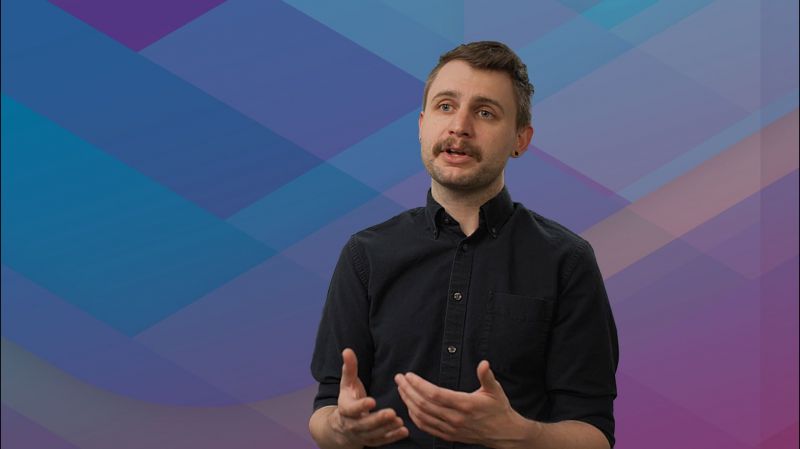It’s Time to Redefine the Confident Leader
Arrogance is so passé. There are better ways to demonstrate competence and capability at work

Confidence can be a wonderful trait — and a fruitful one. Research shows that we as humans are drawn to people who know what they’re doing, for a range of social and evolutionary reasons. People with high self-esteem perform better, make more money and enjoy what they do more than their less-assured peers.
When we’re around confident people, not only do we feel better about the work we’re doing, we also feel more confident, too.
But does confidence have to be cocky?
For decades, a popular archetype made it seem that way. There’s a lingering notion that a confident leader must be brash, assertive and arrogant to be effective. They should have all the answers, all the time. They should march into a meeting — probably in an expensive suit — and command the room simply by being there. Picture Alec Baldwin’s character in Glengarry Glen Ross. (Or Alec Baldwin’s character on 30 Rock, for that matter.)
There’s a role for that kind of swagger. But it’s not the only way confidence presents itself. In fact, as workplaces evolve to recognize the value of different leadership styles, it’s a good time to address the different — and less pushy — ways in which people can assert their capabilities and demonstrate their competence.
We asked two leadership coaches — Adea Cocoli, BCom’16, who works with individuals to develop deep confidence, and Sophie Turner, MMIE’21, who specializes in helping people tap into courage and authenticity — to update the definition of what it means to be a confident leader at work.
A confident leader can be quiet
Many of Adea Cocoli’s clients come to her with similar worries: They’re afraid of messing up. They wrestle with self-doubt. They’re anxious about being “found out.” In essence, they’re not the loud-and-proud leaders they feel they ought to be.
That’s OK, Cocoli always tells them. In fact, it’s great: “I think true confidence is quiet and steady and self-assured,” she explains. “It’s the opposite of arrogance.”
Cocoli came to this position from experience. Before starting her own coaching practice, she spent years working as a growth and business design leader for a major global consultancy, where her natural comportment as a leader — which reads as thoughtful and tranquil — won over colleagues and clients alike. “I was not the loudest, nor was I always the first to put up my hand, and it served me,” she says. Why? Quite simply, folks were drawn to her flash-free vibe. “People can tell when someone is deeply confident — when someone has a deep sense of self-assuredness. You don’t need to dominate a room to show that.”
A confident leader can be uncertain
For a lot of Sophie Turner’s career to date, the words “I don’t know” were seen as credibility killers. Leaders were meant to have both omniscient expertise and infallible judgment — or, at the very least, project it. That’s changing, she says, as more organizations recognize that people respond better to leaders who opt for honest vulnerability over bulletproof bluffing. “You don’t have to be the smartest person in every room,” she says. “Confidence sometimes means saying ‘Actually, I have no clue.’ ”
Admissions like this show that you’re approachable. They indicate that you’re genuine. And they create an opportunity to remind yourself of your ability to solve new problems. “There’s a difference between ‘I don’t know,’ and ‘I don’t know, but I’ll find out,’ ” Turner explains. Once you learn to trust your ability to accomplish the latter, she adds, you can walk into any uncertain situation with your head held high.
A confident leader can be unique
There was a time when newcomers to business were offered clear blueprints for how to comport themselves to be taken seriously at work. There were widely accepted rules about how to dress to convey credibility, how to behave to get ahead, and even how to stand, sit, and hold your hands to confer power. Some of these guidelines are painfully outdated, but many new leaders still find themselves conforming to an exaggerated, all-knowing stereotype — even if it feels forced.
“A lot of young people show up that way because they’ve been highly influenced by authoritative figures around them,” Turner says. “Their challenge becomes a matter of balancing what they’ve seen people do with what they want to do.”

A confident leader can be inexperienced
As anyone who’s rocked a big proposal or a major meeting more than once will tell you, the more you do something, the more sanguine you get about your ability to do that thing. And it is true that experience often begets confidence. But experience can come in many forms that aren’t directly involved with — or even related to — professional accomplishments. You shouldn’t necessarily let a slim CV diminish your belief in your ability to do something new.
“When people tell me ‘I don’t have the experience to do that,’ I almost always say ‘Yeah, you do,’ ” Turner says. “It’s all in how you recall it and position it.”
If your LinkedIn profile is lighter on formal accomplishments and titles than you’d like, Turner recommends taking a different sort of inventory. What have you excelled at during your studies, or through your international work experience, or in your volunteering work or on the job hunt? Are there common threads that point to particular capabilities? Maybe you’ll discover that you tend to be quick on your feet, or you’re analytical, resourceful or team-minded. These attributes can be every bit as useful as experience.
There’s additional value to this stock-taking: It can result in a much-needed mental reset. In the 2021 book The Gap and The Gain, authors Dan Sullivan and Benjamin Hardy write of the human tendency to focus on the gap between where we are and where we want to go — and discount how far we’ve come from where we started. But, as Cocoli explains, looking at the rich range of experiences behind us can put wind in our sails to do more, better and faster.
“It’s easy to say, ‘I don’t have enough years of experience, ’ if you’re looking at a gap ahead,” she reasons. “But look at your life. You’re not zero years old. You’ve had leadership experiences in your personal life, at school, in your community, and they’ve shaped you and helped you develop strengths in you. You can create confidence by recognizing that.”
A confident leader can be built
Few people are innately confident — at least, not naturally, and definitely not all the time. That’s part of why the adage “Fake it till you make it” is almost a cliché. That, and because it works: You really can bluff your way to an assured and competent impression — at least for a while. That said, Cocoli isn’t a fan of “Fake it till you make it” as a hype-up mantra. “It’s a double-edged sword,” she asserts. “Because it opens with the word ‘fake,’ it signals to your brain that you’re not being authentic to who you are. And that sets you up for failure, ultimately, because inauthenticity is unsustainable.”
Instead, Cocoli prefers a more constructive maxim: “Do it till you prove it.” Why? “There’s a key difference there: You don’t have to feel 100 per cent confident to take confident action,” she says. You can approach building confidence as you would building muscle, she adds: It can be uncomfortable, and it takes practice and discipline to push through the work, but it absolutely can — and does — accumulate over time.
There are specific exercises to work that muscle. Turner recommends keeping a notebook to record your achievements and the competencies you displayed in pursuit of them. “If you write it out, you’ll remember it,” she says. “And then you can go back to it every year or so to look for themes.”
Another trick? Ask your pals. Turner is a big fan of Simon Sinek’s Friends Exercise, wherein you ask a group of close buddies a simple question: Why are we friends? Their responses will reveal innate traits and aptitudes to fill your confidence arsenal when you’re on unfamiliar professional terrain.
And when all else fails, remember this: Confidence is, ultimately, a bet on your own capability. “You don’t need to be certain of outcomes. You just need to be certain of your ability to handle whatever comes your way,” Cocoli reasons. “It’s not about never falling. It’s about trusting that you’ll get up, no matter what.”





